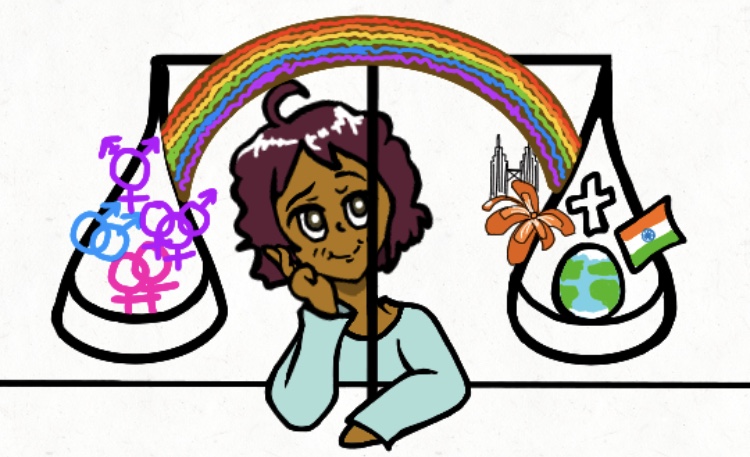After one NYU student first came out as queer to their mother, they never spoke about it again.
To the student, identifying as queer, a slur now broadly reclaimed by the LGBTQ+ community, meant being free to explore their sexuality beyond labels of gay or straight. They wanted to share this part of themself with their mother when they came out. But for a while, their mother was so adamant to pretend it never happened that the Tisch first-year felt as if they hadn’t come out to their family at all.
According to the student, who asked to remain anonymous due to concerns for their safety, their mother was quite “traumatized,” her reaction likely fueled by the discriminatory laws and social attitudes toward the LGBTQ+ community in their home country of Malaysia. Given the importance Malaysian families place on upholding their reputations, they were deeply hurt but understood their mother being in denial.
In Malaysia, where Islam is the official state religion, LGBTQ+ individuals can be forced into the closet by laws that stipulate openly gay and transgender individuals are committing public indecency. These laws do not protect against the abuse, imprisonment or killing of queer people, and punishments for LGBTQ+ citizens can extend from caning to physical and sexual assault by law enforcement officials. Measures for the safety of queer people are sought after before any hopes of legalizing gay marriage or gender transitions can be realized.
This kind of brutal intolerance at home can be familiar and difficult to handle for many queer international students, especially given the current global pandemic — COVID-19.
Yet luckily, much to the student’s surprise, their mother showed signs of subtle tolerance after the incident.
The student continued to express their homosexuality online where their parents could see it without them having to discuss it with each other: Neither of their parents objected to their involvement in online LGBTQ+ platforms, such as including a pride flag in their Instagram bio and regularly sharing LGBTQ+ relevant stories on Facebook.
They silently agreed to prioritize living in harmony over confrontation. Over time, the student and their parents both became considerate of the differences between the student’s Americanized perspective and their traditional Malaysian values.
“I grew up at an American school [in Malaysia] and I can see there’s this total clash of cultures between my parents’ worldview and my whole new one,” the student said. “We have to be considerate of each other’s differences, which makes it possible for us to still live together. It was hard for me at first, but I know there’s no point in me pushing my identity on them all at once.”
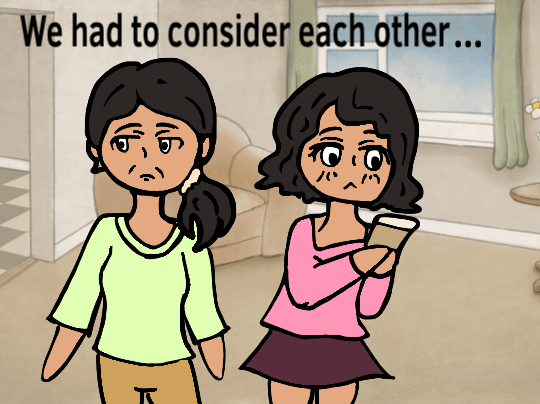
The student believes that it is important to recognize that beyond the NYU community, cultures and societal morals have a valuable role in how someone expresses their LGBTQ+ identity. Like them, many other queer students with strong cultural and familial ties grapple when conflicts arise between their cultural values and intersectional identities. They often have to find a balance between what they grew up with and what they need to feel comfortable with their identities.
Before coming out as bisexual to part of her extended family, Steinhardt senior Jennifer Castillo seriously considered the impact religious and cultural values would have on her mental health, their understanding, and their treatment of her after the fact. Castillo’s parents, who migrated from El Salvador and the Dominican Republic, have their values not only rooted in their national cultures but also in Catholicism.
“I definitely felt the clash of the pseudo-Catholicism that was placed onto me with my identity and stayed in the closet way longer than I should have because of how that impacted me,” Castillo said.
While she was closeted to her family in middle school, Castillo began to overcome her struggle through focused self-reflection and journaling. Having a contained, private space to explore herself and come to terms with her sexuality in the context of her family’s religious and cultural values helped Castillo feel more comfortable with her bisexuality, and eventually come out to her family.
Still, Castillo had to be cautious about who she could open up to. While she was comfortable coming out to friends as early as middle school, her immediate family was one of the last to know. She eventually had the courage to introduce her girlfriend to other family members at her aunt’s house this past winter break.
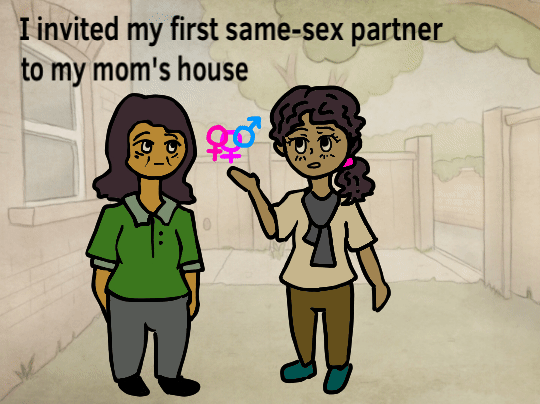
Through each stage of Castillo’s coming out journey, she opened up to a new family member and gained enough support to feel confident in expressing her bisexuality to a large majority of her extended family.
Castillo also found comfort in NYU’s student queer community. One of the LGBTQ Center’s clubs, Shades, provides support and community for queer people of color specifically. Through Shades she found solace and guidance in a community with numerous others that were going on journeys similar to hers.
Yet outside of safe spaces like Shades, being a person of color or an international student in the LGBTQ+ community can feel isolating, as some LGBTQ+ students at NYU fail to acknowledge the significance of the intersection between culture and sexuality. It doesn’t help that mainstream media tends to perpetuate a white American experience, either.
For instance, the anonymous student is often taken aback by domestic LGBTQ+ students who judge their mindset of reducing family conflict instead of engaging in direct confrontation. Sometimes they wish they would do more to understand their situation and the issues that come with identifying as LGBTQ+ and not coming from the United States.
“There’s only awareness about what’s happening in America and not about the world,” the student said. “What I’m experiencing here in Malaysia is a hundred years plus back from what you have, and what I’m fighting for is not even the right to get married but the right to not get killed on the street.”
In New York, many LGBTQ+ organizations have made a special effort to prioritize the narratives of people of color, and emphasize an expanded, intersectional perspective of people’s experiences. Steinhardt senior Somaya Gupta works with one such organization, GLAAD. They are a transgender, genderfluid and sexually queer student of color. Gupta has taken on the role of a campus ambassador in GLAAD, acting as a role model and inspiration for those new to the queer community, particularly people of color, on Instagram and beyond.
“I’ve had quite a few people reach out to me, saying my Instagram has helped them and made them more comfortable in wanting to come out to people,” Gupta said. “Social media is what I use to find other people like me and express my queerness while feeling safe behind a screen where I can’t be easily attacked.”
Through social media, Gupta has found others who understand their identity as a queer, Indian person and the struggles they face. It was one of the major tools they used to feel comfortable in their own skin, given their difficult experience being openly queer to their Indian extended family and in their home state of North Carolina.
“[In India] I’ve had a lot of aunties being homophobic in the past, especially when I was in the closet because they didn’t think it counted then,” Gupta said. “When I go to the bathroom [in North Carolina], I get a lot of stares from other women, particularly white women. I used to force myself to be as femme and straight-passing as possible, but after meeting more people like me, I’ve become more comfortable ‘looking gay.’”
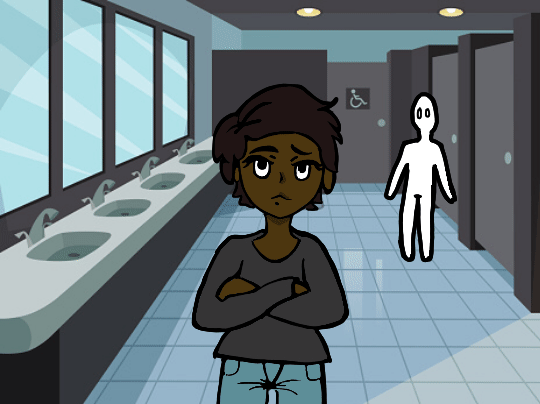
Having long-standing support online and on campus has made it easier for them to understand themselves and the full scope of their identity. Gupta has grown comfortable in their own skin, appreciating their intersectional identity and no longer feeling obligated to conform to the expectations of their hometown, extended family or one particular type of LGBTQ+ identity.
“I’d say focus less on finding a label and focus more on doing what feels good,” Gupta said. “For a long time, I was like, am I this, am I this, am I this? And eventually I decided I’ll just cut my hair, I don’t need to figure out the exact way to say how I am.”
More comfortable members of the LGBTQ+ community, like Gupta, can have an extremely meaningful impact on those in the early stages of figuring out their identities.
For the anonymous student, this kind of advice came from their gay older brother, who also remains closeted in the family, who wanted to help them explore their sexuality while living in Manhattan. Their brother, who also had been exposed to online queer discourse, was the one who actually encouraged them to identify as queer so they wouldn’t feel pressured to stick to one definitive sexuality label.
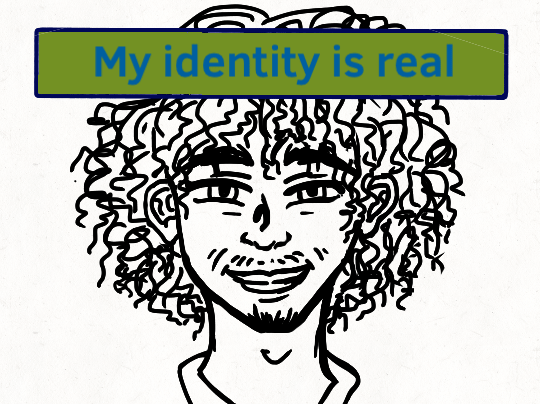
(Staff Illustration by Sammy Tavassoli)The inclusivity and intersectional understanding that the anonymous student’s brother and Gupta share are vital to the NYU LGBTQ+ community becoming more supportive of the struggles LGBTQ+ people of non-American experience and people of color face.
For many students – Gupta and Castillo included – being a person of color, an international student and queer means having to deal with an intersection of family life, cultural values, religion, American perspectives and even restricting labels as one hopes to achieve self-acceptance. With organizations like GLAAD and Shades, students are working to promote awareness for such complex experiences in hopes of making spaces, including NYU and the university’s existing queer community, safer and more understanding.
“The hardest part was figuring out how to balance my Indian identity and my queer one,” Gupta said. “But now that I have, I love having both of these identities and they give me a unique perspective on the world. The coolest thing is seeing someone who’s visibly queer like me and having this weird mental connection.”

Students like Gupta who encounter identity struggles from multiple sides can lean on other queer students and allies to lessen their burdens, making them feel far less alone. By having their voices heard and their paths respected, LGBTQ+ students of color, including international students, may feel greater comfort in being their most authentic selves. As the current COVID-19 situation continues to demand students remain at home, this kind of support has become vital to their wellbeing and happiness.
Email Sammy Tavassoli at [email protected].























































































































































